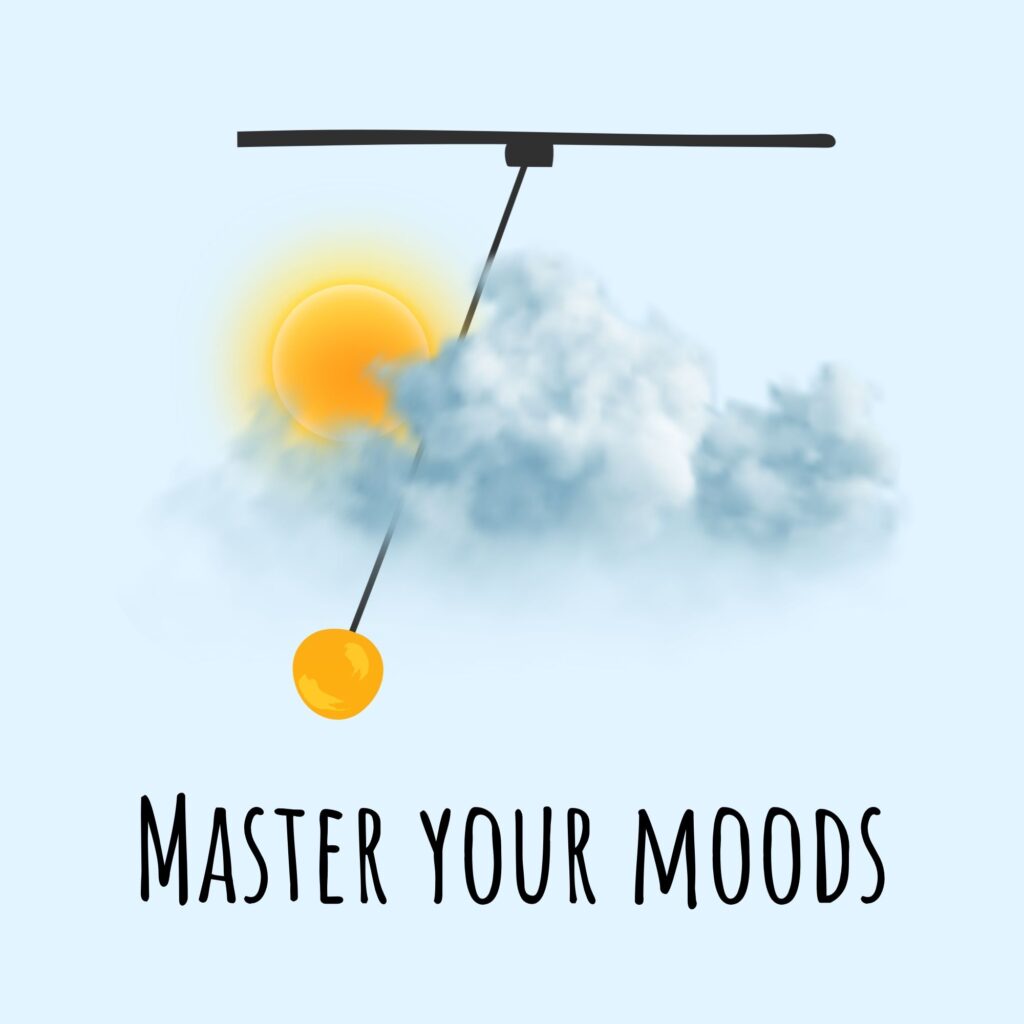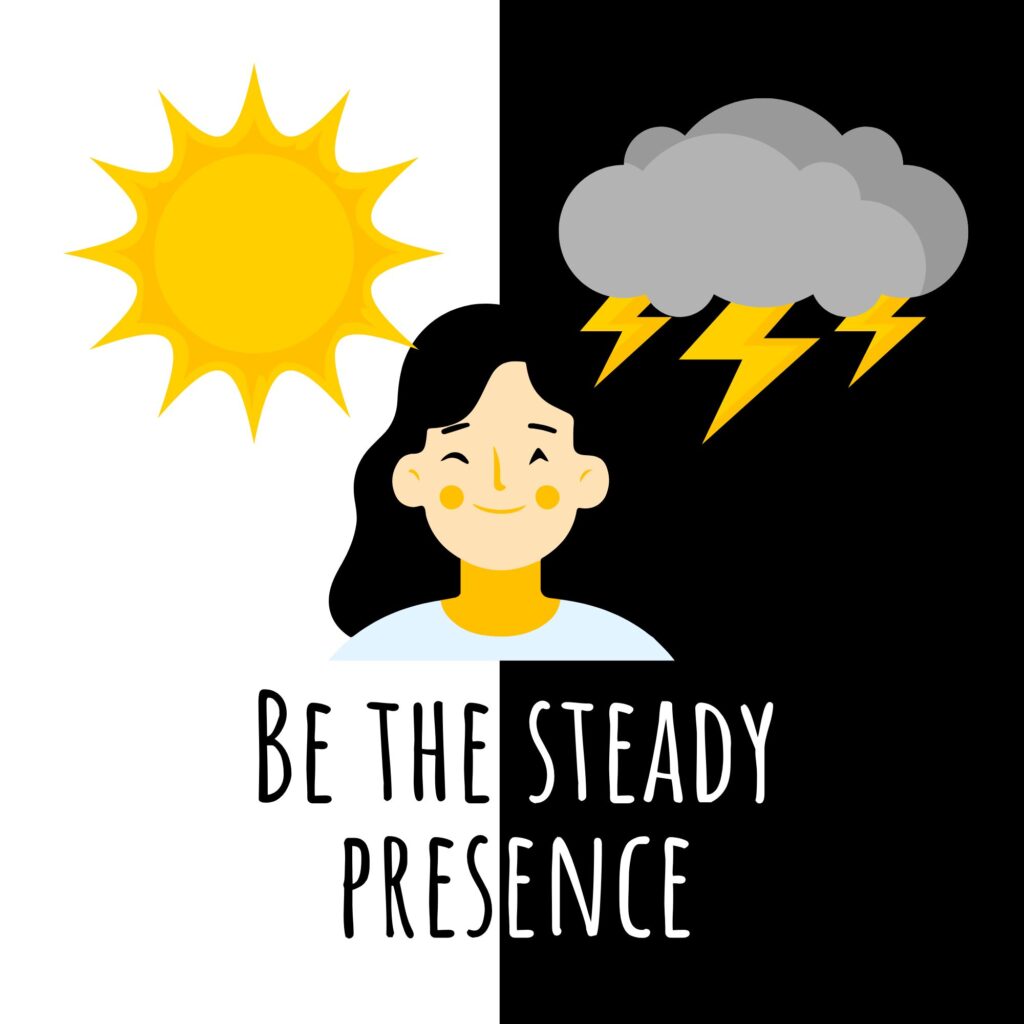Mastering Moods: A Guide to Emotional Equilibrium

You’ve probably experienced it. One moment, you wake up feeling energized and optimistic, but by midday, your motivation has drained, and anxiety begins to creep in. Maybe something at work frustrated you, or a vague unease started gnawing at you for no apparent reason. Our emotions, or "moods," are like the weather—constantly shifting, often unpredictable, and influencing how we see the world around us. One of the great challenges to self-development is dealing with these ever-changing moods that color our everyday lives. They hold immense power over us, altering not only how we feel but how we respond to people, situations, and even ourselves.
Why are moods such a major obstacle? And how can we gain control over them? Let’s delve deeper into what they are and how we can navigate through them effectively.
The Nature of Moods
Moods are essentially emotional temperaments. They arise from emotions and are primarily an emotional phenomenon. You might think, “Of course, that’s obvious.” But moods can also affect us intellectually—think of those times when laziness makes your mind feel sluggish or dull. Still, the core of every mood is emotional. Picture this: one morning, you’re feeling motivated and confident, ready to tackle the day’s tasks. Then, out of the blue, a minor inconvenience at work stresses you out, and your mood takes a sharp dive.
Moods swing like a pendulum between opposite emotional poles. One moment, you feel happy and light; the next, sadness or frustration washes over you. Happiness and sadness, elation and depression—moods are always paired in opposites, and they tend to follow each other. After a phase of high anxiety, we often feel a sense of exaggerated relief or even excitement. It’s like sunshine and cloud cover: one follows the other, in a seemingly endless cycle.
At the heart of this emotionality is a blind impulse driven by attraction or repulsion. We are drawn to things that please us and repelled by things that discomfort us. This biological wiring creates the mood swings we know so well. And while we can’t escape the presence of moods entirely, our real challenge is to stop identifying with them. The goal is to reach a state of emotional equilibrium—where moods come and go, but they don’t shake our core.
The Influence of Moods in Daily Life
Think about a typical day. You might wake up feeling good, perhaps even enthusiastic, but as the hours pass, little things can quickly shift your mood. The traffic jam that delayed you, the email you forgot to send, or even just a lingering sense of anxiety with no clear source—all of these situations can cloud your day. Moods, while fleeting, can have a powerful influence on our decisions, reactions, and relationships. For example, a historical figure like Abraham Lincoln is known for grappling with his own moods—he referred to his bouts of deep sadness as “melancholy,” yet despite these emotional lows, he achieved incredible feats during the Civil War. What set him apart was his ability to keep functioning despite his mood swings.
So why do moods impact us so intensely? It’s because we often see them as extensions of ourselves. But this is the key misunderstanding: your mood isn’t you. It’s a transient state that you experience, not your true self. Realizing this difference is the first step in gaining control.

How to Control and Influence Your Moods
It’s crucial to understand that while you can’t stop moods from happening, you can control how you respond to them. Here are a few practical strategies:
1. Shift your perspective:
Your worldview significantly impacts how much control your moods have over you. If you believe that nothing has meaning and everything is random, then your mood swings don’t matter either—they’re just passing phenomena. Alternatively, if you believe everything happens for a reason, then even a bad mood has value—it’s part of a larger plan that serves your growth. By changing your mental framework, you can lessen the grip of negative emotions.
2. Take care of your body:
Physical factors like fatigue, poor diet, or lack of sleep can worsen mood swings. When you’re physically exhausted, your nervous system becomes strained, making you more vulnerable to irritability, anxiety, and stress. Preventing these physically induced moods is simple: nourish your body, get enough rest, and avoid overstraining yourself. Pushing past your physical limits won’t make you more effective; it will just lead to burnout and unnecessary emotional distress.
3. Practise emotional awareness:
When moods arise from within—be it joy, irritation, or sadness—they can often feel overwhelming. The trick is not to let these moods blind you. Cultivate a mindset of calm observation. Recognize that these feelings aren’t you; they are temporary clouds passing through your consciousness. By distancing yourself from them, you prevent them from controlling your behavior.
4. Develop Mental Strength:
True strength lies in doing what you’ve set out to do, regardless of your mood. The next time you feel lazy or doubtful, push forward anyway. If you have a task, finish it, even if your mood is telling you otherwise. This ability to act despite how you feel is a sign of mental resilience. You’re not being dishonest with yourself; you’re choosing to prioritize long-term goals over fleeting emotions.
5. Acknowledge the Cyclical Nature of Moods:
Moods, like seasons, will always change. A period of happiness will inevitably give way to frustration or sadness. Recognizing this natural ebb and flow helps you keep perspective. There will always be ups and downs, but your goal is to remain grounded and steady in both the highs and the lows.
Conclusion: The Real You is Steady and Unchanging
Here’s the key takeaway: Your moods are not the real you. They are passing experiences, like clouds drifting across the sky. Beneath the surface of these ever-changing emotional states is your true self—steady, constant, and unaffected. The goal isn’t to eliminate moods or pretend they don’t exist. Instead, it’s to develop an inner calm that remains unshaken regardless of what mood arises.
With practice, you can cultivate this emotional balance. Meditate on the idea that your true self is constant, while your moods are just temporary fluctuations. Over time, this mindset will become part of your habitual thinking, giving you the strength to act wisely and with purpose, no matter how you feel. In the end, mastering your moods is about becoming the hero of your own life—choosing how you respond, rather than being a victim of the whims of emotion.
Remember, while the light and darkness of moods may never leave your life, your steady inner self can remain untarnished, grounded, and free.




